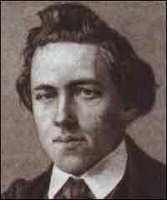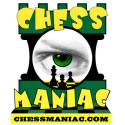UNRIVALED PERFORMANCES BY PAUL MORPHY (PART II)

Such astounding feats as those performed by Mr. Morphy, in Paris, brought the excitement in the chess-playing world of that city up to white heat; and the memorable occasion when he played against and beat, blindfolded, eight of the best players of Paris, at one time, led some to believe that he possessed almost supernatural faculties. The cafe de la regence, at which this extraordinary feat occurred, had two large rooms on the ground floor. In the first room, which was full of marble tables, were seated the eight adversaries of Mr. Morphy. In the second room, in which were two billiard tables, was seated the single player. A large portion of this room, including the billiard tables, was shut off from the crowd by a cord, and behind the tables, in a large armchair, sat Mr. Morphy, with his back to the crowd. Two gentlemen, reporting for the press, kept the game, and two other gentlemen, Messrs. Journoud and Riviere, cried out the moves, or carried them from one room to the other. The adversaries of Mr. Morphy were all either old or middle-aged men, and eminent as skillful players. The boards of the eight players were numbered 1,2,3,etc., and at half-past twelve o'clock the game commenced. Mr. Morphy playing first, and calling out the same move for all the right boards, KP 2. At seven o'clock, No. 7 was beaten with an unlooked-for check-mate. Soon after eight o'clock, No. 6 abandoned the game as hopeless; and, half an hour later, No. 5 played for and gained a draw game. Nos. 1, 2, and 3, were soon after beaten. At ten o'clock, No. 4 made the blind player accept a draw game, but it was half-past ten before M. Seguin, No. 8, a very old gentleman, who contended with great desperation, was beaten. Thus he beat six, while two, who acted on the defensive and only sought a draw game-- equivalent to a defeat--effected their purpose.
During the entire game, which lasted just ten hours, Mr. Morphy sat with his knees and eyes against the bare walls, never once rising or looking toward the audience, nor even taking a particle of drink or other refreshment. His only movements were those of crossing his legs from side to side, and occasionally thumping a tune with his fingers on the arms of the chair. He cried out the moves without turning his head. Against 1,2,3,6, and 7, who were not up to the standard of the other three players, he frequently made his moves instantaneously after receiving theirs. He was calm throughout, and never made a mistake, nor did he call a move twice. And, as around each of the eight boards there was a large collection of superior chess players, who gave their advice freely, and who had eight times longer to study their play in than the single player, Mr. Morphy played certainly against fifty men, and they never ceased for a moment making supposed moves, and studying their game most thoroughly, during the long intervals that necessarily fell to each board. At the end of the game, a triumphant shout of applause went up from the three hundred throats present, many of them Englishmen and Americans (among the latter was Professor Morse, who took a deep interest in this extraordinary game), but the much larger number were French. Morphy did not seem at all fatigued, and appeared so modest that the frenzy of the French knew no bounds. He was shaken by the hand and complimented till he hung down his head in confusion. One gray-haired old man, an octogenarian chess-player, stroked Mr. Morphy's hair with his hands, as he would a child of his own, and showered him with terms of endearment. The waiters of the cafe had formed a pleasant conspiracy to carry Morphy in triumph on their shoulders, but the multitude was so compact and demonstrative that they could not get near him, and finally had to abandon the attempt. These blindfold games he also played with equal success in Birmingham.
No less a man than Mr. Mongredien, the president of the London chess club, went to Paris, still further to satisfy himself as to the real merit of Mr. Morphy's playing, and as to the rank he ought to occupy. Mr. Mongredien and Mr. Morphy played eight games, one of which, the first one, was drawn, and the others were gained by Mr. Morphy. In this trial of skill, two facts were remarked in regard to Mr. Morphy's playing--which were also almost universally remarked in his games when contesting with a first-rate player. These were, that he seldom won the first game, and that up to about the twentieth move he rarely showed any superiority over his competitor. It was only after that point in the game, that he commenced those extraordinary and unlooked-for moves which astonished the audience and crushed his antagonist beyond hope of recovery.
Previously to his departure from Paris, a splendid banquet was given him, on which occasion the most eminent French players did him the unprecedented honor of crowning his bust with a laurel.
Returning to America, the young Achilles of Chess was everywhere received with spontaneous demonstrations of enthusiasm, and in the great cities he was the recipient of splendid testimonials, worthy of his achievements and renown.
It was in New York, that Mr. Morphy was honored with such an ovation as rarely falls to the lot of earth's greatest heroes, and still more rarely in simple recognition of a peculiar talent or genius. About fifteen hundred ladies and gentlemen were in attendance on this occasion, and the presentation speech was made by John Van Buren, to which Mr. Morphy replied in a neat and graceful manner. The cadeaux which he received from the chess club were of dazzling magnificence,--chess men in gold, boards of equally costly material, wreaths of silver in imitation of laurel, costly watches, etc., etc.
To the tune of "See the Conquering Hero Comes," Mr. Morphy entered the thronged and magnificent hall. As the procession reached the platform, and the figure of Morphy became visible to the great body of the audience, the enthusiasm of the assemblage was intense. Amidst almost deafening applause, the youthful champion took a seat assigned to him by the side of Mr. Charles O'Conor, and calmly surveyed the exciting scene. To those who had not seen the victor before, his extreme youth, mild expression and unassuming manner, were matters of complete but most pleasurable surprise. The hero of the Cafe de Regence, the successful competitor of Harrwitz and Anderssen, the champion of the world in the profound game of chess, was but a lad in appearance and demeanor, and evidently without the least self-consciousness of his marvelous power.
Mr. Van Buren, in his eloquent presentation speech, gave a short review of the history of chess and of the eminent personages who had distinguished themselves as players; alluded to the rapid course and achievements of Mr. Morphy, who, in 1857, commenced his career in New Orleans, and, early in 1858, was the acknowledged victor, over all competitors, at New York, and had reached the culminating point in the halls of Paris and London; spoke of the thousand and more years in which chess had been known in various portions of the world--that it had been taught and valued on the banks of the Ganges, in the remote regions of Iceland--throughout Europe, Asia, and in many parts even of Africa; instanced Franklin, Charlemagne, Catherine de Medicis, Leo X., Voltaire, all of whom were lovers of the game, and Napoleon, who had played in the identical cafe where Mr. Morphy had won his victories. The orator then read a letter from Professor Morse, who mentioned being present at one of the games in Paris, where Mr. Morphy was received with great enthusiasm. A quotation was also read from Dr. Franklin's writings, in which he avowed himself the friend of the chess board, pointing out its representation of real life and inculcating foresight, circumspection, and principles of assault and defense.
To be continued...
Read Part I
Play free online chess!
--------------------------------------------------------------------------------
About the Author
Original Title - UNRIVALED PERFORMANCES BY PAUL MORPHY, THE AMERICAN CHESS CHAMPION--1858. This is from the book, OUR FIRST CENTURY, by R.M. Devens (1876), which is in the public domain.



















0 Comments:
Post a Comment
<< Home